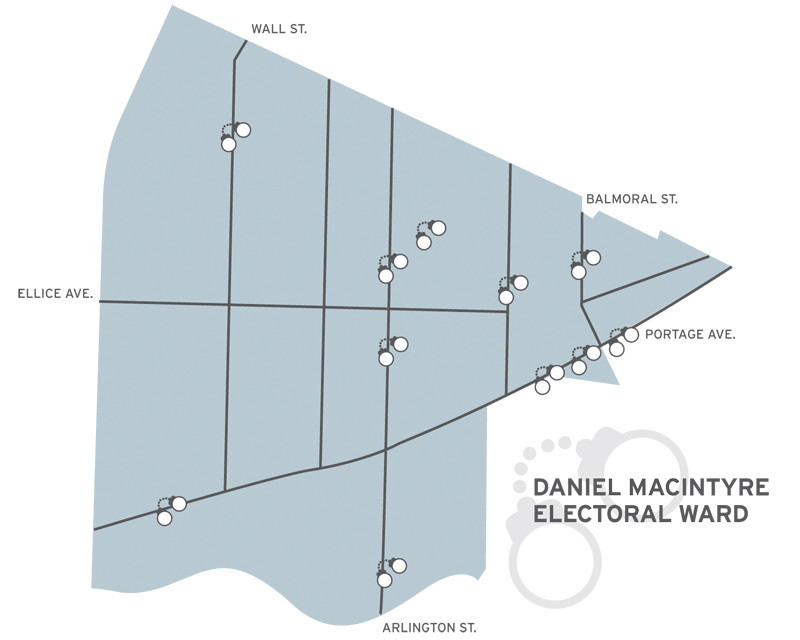The Better Voter Series: Gangs at the top of mayoral candidates’ crime agendas
Critics question value of hiring more police officers
Crime is a hot-button issue in Winnipeg’s civic election, especially with the release of Statistics Canada data that finds Winnipeg is still the homicide capital of Canada.
While Winnipeg’s crime rate has fallen by five per cent since this time last year according to Winnipeg Police Service’s CrimeStat, Statistics Canada reports that Winnipeg’s police-reported crime severity index rose in relation to the rest of Canada’s.
Gang-related crimes are a common concern shared by most of the mayoral candidates.
On Oct. 7, incumbent Sam Katz announced a pledge of $2 million to the University of Winnipeg for an indoor soccer recreation complex to help reduce gang activity.
“It certainly helps when you are giving inner-city youth recreation centres in an opportunity to move forward,” said Katz, who has been endorsed by the Winnipeg Police Association.
“You need to give children hope and if you don’t give children hope, gangs can prey on young people.”
Judy Wasylycia-Leis also finds gang-related crimes the most worrisome.
“ As a person who’s been mugged and lived with eight years of physical violence, I don’t want to see those people locked up and hurt by the system ... I want to see them getting help instead.
Stephanie Manfield, University of Winnipeg Collegiate student
“It is a deadly combination when alienated youth living in marginal situations are exposed to gang culture,” said Wasylycia-Leis.
“We need programs like sports, music, skateboarding and arts so that youth can not only have greater opportunities but also a safe place away from the clutches of gangs.”
Most importantly, notes Wasylycia-Leis, there needs to be a comprehensive crime and safety plan that addresses not just policing, but also protection and prevention that helps residents take back their neighbourhoods through community policing.
University of Winnipeg Collegiate student Stephanie Manfield supports this approach.
“As a person who’s been mugged and lived with eight years of physical violence, I don’t want to see those people locked up and hurt by the system,” Manfield said. “I want to see them getting help instead.”
Mayoral candidate Rav Gill calls for a police task force on gangs and a crime-free housing program that would evict gang members who use houses as drug dens.
“We’ll be the first ones there to help gang members turn their life around through education, job training and support and prevention of Fetal Alcohol Spectrum Disorder,” Gill said.
Petty crime is the biggest issue for Brad Gross, particularly the breaking of car windows in the downtown area.
To prevent this, he calls for the installation of cameras that would be paid for through business taxes.
“We’d only be putting cameras up in places of public property, which would help alleviate the stigma that the downtown is not a safe place,” Gross said.
Michael Weinrath, chair of the U of W criminal justice department, questions whether crime is actually a major issue or if this is just a matter of the public’s perception.
He notes that most crimes happen when police officers are not present and are often solved by investigative networks.
“The mayor has bragged about police hires, so where’s the reduction in crime?” Weinrath asked.
“Why should we believe his increase of police officers will decrease crime?”
With files from Ethan Cabel.
Published in Volume 65, Number 7 of The Uniter (October 14, 2010)







